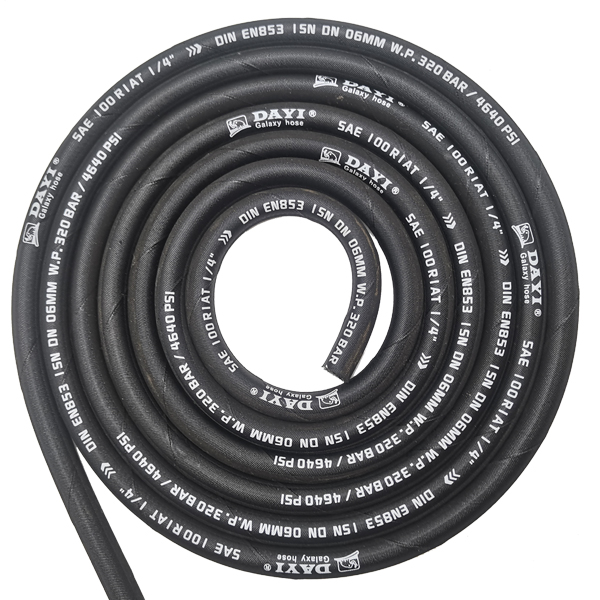8 月 . 16, 2024 09:10 Back to list
Top Manufacturers of High-Pressure Hydraulic Rubber Hoses for Industrial Applications Worldwide
The Importance of High-Pressure Rubber Hydraulic Hose Factories in Modern Industry
In today's industrial landscape, the demand for high-quality hydraulic solutions has surged, leading to the proliferation of high-pressure rubber hydraulic hose factories. These factories play a critical role in various sectors, including construction, agriculture, aerospace, and automotive, by providing essential components that facilitate the efficient transmission of fluids under high pressure.
What is a High-Pressure Rubber Hydraulic Hose?
A high-pressure rubber hydraulic hose is specifically designed to carry hydraulic fluids from one component to another in a hydraulic system. These hoses are constructed using durable rubber compounds and reinforced with multiple layers of high-strength materials, such as steel wire, to withstand significant pressure fluctuations and ensure longevity. The ability of these hoses to endure high pressures and temperatures while remaining flexible is crucial for the safe and effective operation of hydraulic systems.
The Manufacturing Process
The production of high-pressure rubber hydraulic hoses involves several key steps that ensure the final product meets rigorous industry standards. Raw materials, including various grades of rubber and reinforcing materials, are first sourced from reliable suppliers. The manufacturing process typically begins with the blending of rubber compounds, which may include synthetic or natural rubber mixed with additives to enhance performance characteristics.
After the mixture is prepared, it is shaped into hoses using specialized machinery that extrudes the rubber into the desired diameter and length. Next, the reinforcing materials are added, often in the form of spiraled steel wire, which provides the necessary strength to withstand high pressures. Once assembled, the hoses undergo a curing process, where they are heated in a controlled environment to ensure optimal bonding of materials and enhance durability.
Quality Control and Testing
high pressure rubber hydraulic hose factories

Quality assurance is paramount in high-pressure rubber hydraulic hose factories. Each batch of hoses is subjected to rigorous testing, including pressure testing, temperature cycling, and bend testing, to ensure they meet industry standards such as ISO 18752 or SAE J517. These tests help manufacturers identify any potential weaknesses and ensure that the hoses can handle the demanding conditions of various applications.
Applications Across Industries
High-pressure rubber hydraulic hoses find applications in numerous industries. In construction, they are essential for operating heavy machinery such as excavators, bulldozers, and cranes. These hoses enable the transfer of hydraulic fluid, which powers hydraulic cylinders and enables the movement of equipment.
In the agricultural sector, hydraulic hoses are vital for the operation of tractors and other farming equipment, facilitating tasks such as plowing, harvesting, and irrigation. In the automotive industry, hydraulic systems rely on high-pressure hoses to operate brake systems, power steering, and other critical components.
Moreover, aerospace applications demand high-performance hoses that can withstand extreme conditions and pressure variations, making the role of hydraulic hose factories even more significant in this realm.
Conclusion
High-pressure rubber hydraulic hose factories are the backbone of many industries, providing crucial components that enable the efficient functioning of hydraulic systems. With advancements in technology and a focus on quality control, these factories are well-positioned to meet the evolving demands of various sectors. As industries continue to grow and innovate, the importance of high-quality hydraulic hoses will only become more pronounced, solidifying the vital role that these factories play in modern industrial operations.
-
EN857 2SC Hydraulic Hose Suppliers OEM & China Manufacturers
NewsMay.30,2025
-
51mm Hydraulic Hose Manufacturer China OEM Durable & Custom Solutions
NewsMay.30,2025
-
OEM Rubber Air Hose Supplier Durable Custom Solutions
NewsMay.29,2025
-
High-Pressure Wrapped Cover Steel Wire Spiral Hydraulic Hose Supplier
NewsMay.29,2025
-
Rubber water suction and discharge hose
NewsMar.07,2025
-
SAE 100 R6/EN 854 R6 Fibre Braided Oil Hose
NewsMar.07,2025



